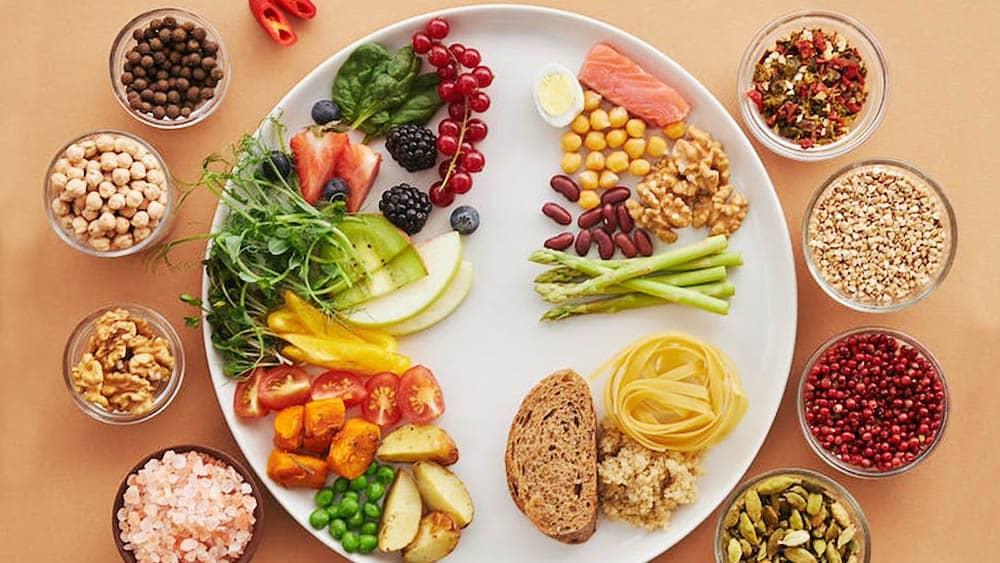An anti-inflammatory diet refers to a dietary approach that focuses on consuming foods with the potential to reduce chronic inflammation in the body. Chronic inflammation is believed to play a role in the development and progression of various chronic diseases, including heart disease, diabetes, obesity, certain cancers, and autoimmune disorders.
Benefits of an Anti-Inflammatory Diet:
Some foods have been identified as contributors to inflammation within the body. An example of such a food is red meat, which is high in saturated fat. Saturated fat, along with trans-fat and refined sugar, has the ability to stimulate specific immune cells to release inflammatory proteins into the bloodstream.
Conversely, there are foods that do not initiate this inflammatory response and, in certain instances, can even help alleviate inflammation. These foods are typically abundant in antioxidants, which combat harmful chemicals known as free radicals. Free radicals have the potential to inflict lasting harm on cells and exacerbate inflammation.
Foods to be included:
Extensive research suggests that individuals who consume a diet rich in vegetables, fruits, nuts, seeds, healthy oils, and fish may experience a decreased risk of inflammation-related diseases. Furthermore, certain substances found in specific foods, particularly antioxidants and omega-3 fatty acids, are believed to possess anti-inflammatory properties.
Foods that are notably high in antioxidants encompass a variety of options:
Apples
Artichokes
Avocados
Beans (such as red beans, pinto beans, and black beans)
Berries (such as blueberries, raspberries, and blackberries)
Broccoli
Cherries
Dark chocolate (with at least 70% cocoa content)
Dark green leafy vegetables (such as kale, spinach, and collard greens)
Nuts (such as walnuts, almonds, pecans, and hazelnuts)
Sweet potatoes
Whole grains
Omega-3 fatty acids, often referred to as “good fats,” have the potential to offer protective effects against various conditions, including heart disease, cancer, and arthritis.
Foods that are excellent sources of omega-3 fatty acids include:
Flaxseed
Oily fish (such as salmon, herring, mackerel, sardines, and anchovies)
Omega-3-fortified foods (including eggs and milk)
Walnuts
In addition to the aforementioned foods, certain herbs and spices, such as ginger, turmeric, and garlic, have shown evidence of their ability to alleviate inflammation.
Foods to be avoided:
Certain foods that are rich in omega-6 fatty acids have the potential to increase inflammation. Although omega-6 fats play a vital role in bone health, brain function, and metabolism, excessive consumption can lead to heightened inflammation.
Foods that are notably high in omega-6 fatty acids include:
High-fat dairy products (such as milk, cheese, butter, and ice cream)
Margarine
Meats
Peanuts
To maintain inflammation at a manageable level, it is crucial to strike a balance between your intake of omega-6 fatty acids and omega-3 fatty acids.
Moreover, foods with a high glycemic index (GI) can contribute to inflammation. These foods, including sugar and refined grains, cause a rapid and significant increase in blood glucose levels.
To help control inflammation, it is advisable to avoid sugary drinks, white bread, desserts, and processed foods. Instead, opt for low-GI foods such as chicken, fish, whole grains, leafy greens, and non-starchy vegetables.
Tips and Advice:
When following an anti-inflammatory diet, it’s important to note that there isn’t a fixed eating plan. You have the flexibility to mix it up and customize it according to your family’s preferences and specific needs. However, there are some guidelines that can assist you in making healthy choices.
Here are a few tips and advice:
Aim to consume five to nine servings of fruits and vegetables rich in antioxidants every day. These can include a variety of colorful options like berries, leafy greens, citrus fruits, and cruciferous vegetables.
Replace red meat in your diet with lean poultry, fish, beans, and lentils. These alternatives provide valuable protein while reducing the intake of saturated fats.
Substitute margarine and butter with healthier fats such as olive oil. Incorporate this heart-healthy oil into your cooking and salad dressings.
Replace refined grains like white bread, saltines, and pastries with whole grains that are high in fiber. Opt for options like oats, quinoa, brown rice, and whole-grain pasta to provide sustained energy and essential nutrients.
Instead of relying on salt to season your meals, experiment with anti-inflammatory herbs and spices like garlic, ginger, and turmeric. These not only add flavor but also offer potential health benefits.
Avoid deep-frying your food, as this can introduce unhealthy fats and increase inflammation. Instead, opt for cooking methods such as baking, boiling, or braising to retain nutrients and minimize added fats.
Remember, these are general guidelines, and it’s essential to personalize your anti-inflammatory diet based on your individual needs, preferences, and any specific dietary considerations you may have.
What is an anti-inflammatory diet, and why is it important?
An anti-inflammatory diet focuses on consuming foods that reduce chronic inflammation, which is linked to diseases like heart disease, diabetes, and cancer.
Which foods should be included in an anti-inflammatory diet?
Foods rich in antioxidants and omega-3s, such as berries, nuts, leafy greens, whole grains, oily fish, and healthy oils, should be included.
Which foods should be avoided to reduce inflammation?
Foods high in omega-6 fatty acids (e.g., red meat, high-fat dairy, margarine) and high-GI foods (e.g., sugar, refined grains, processed foods) should be avoided.

